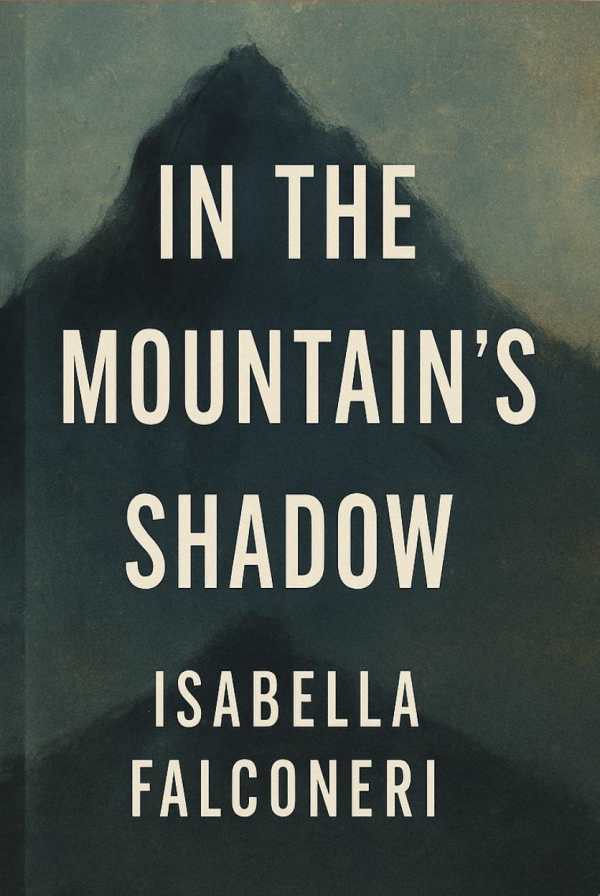In the Mountain's Shadow
Civilized values, conscientiousness, and scruples fall away in the face of daily needs in the lean, affecting novella In the Mountain’s Shadow.
The price of survival takes a devastating toll for a woman who finds a wilderness refuge in Isabella Falconeri’s novella In the Mountain’s Shadow.
In an unknown time and place that’s racked by famine and sickness, a grandmother, Park, leaves her daughter and three grandchildren behind when their food runs out, walking into the mountains to die so they will have one less mouth to feed. She gives them parting gifts of handmade necklaces.
Park endures multiple injuries, hunger, malnutrition, and the fearsome presence of wolves in the mountains. Then she wakes up in an old garden bed with a cabin just beyond. The abandoned shack, and the handwritten journals of its former occupant detailing the edible and poisonous plants on the mountain, saves her life. Across years, she uses the knowledge gleaned from the books to replenish her food stores and replant the overgrown garden. She makes an unlikely alliance with a lone wolf, Ripple, who alerts her to dangers outside her door—most of which walk on two legs, not four.
The novel is a brief, brutal exploration of the dehumanizing effects of living on the edge of survival. Indeed, civilized values, conscientiousness, and scruples fall away in the face of the daily, calorie-sucking hunt for food, making human beings “nothing more than a husk of need.” The prose throughout is linear and urgent, with crisp, staccato sentences and short paragraphs following as Park and the cabin morph into a single entity; she determines to defend it against human predators who threaten their fragile existence. She also works on behalf of those who may come upon the cabin after she is gone.
Park’s yearslong ordeal moves with speed in this grand accomplishment of lean storytelling. The story’s violence is often breathtaking, focused on how bloodshed transforms both assailants and their victims. Park’s memories of her family recede with time and trauma, yet when she takes in a young woman fleeing dangerous pursuers, a shimmering wick of hope that Park can experience love and affection again is introduced. The ending is a gut punch that adds an exclamation point to the dark premise of civilization’s collapse, chronicling the loss of its social and family constructs and the devastating loneliness that results. Recurring typographical errors and misspellings distract from the book’s propulsive energy, however.
In the Mountain’s Shadow is a brilliant, bleak dystopian novel in which survival trumps morality and nature reclaims its primordial roles.
Reviewed by
Peggy Kurkowski
Disclosure: This article is not an endorsement, but a review. The publisher of this book provided free copies of the book and paid a small fee to have their book reviewed by a professional reviewer. Foreword Reviews and Clarion Reviews make no guarantee that the publisher will receive a positive review. Foreword Magazine, Inc. is disclosing this in accordance with the Federal Trade Commission’s 16 CFR, Part 255.

